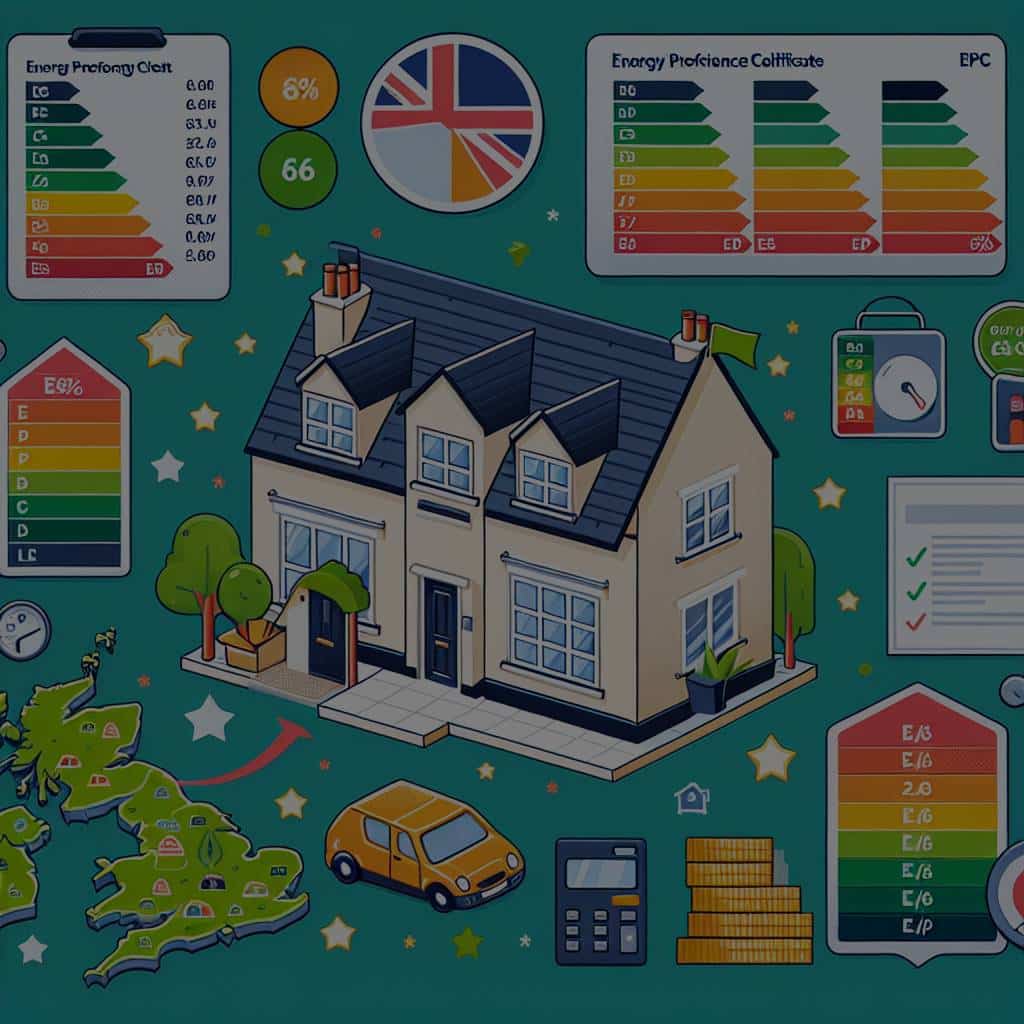What Are the Financial Impacts of the UK’s Energy Performance Certificates on Property Values?

In the realm of real estate, energy efficiency has become a key factor in determining property values. The UK, in particular, has made strides in encouraging improvements in this area through the implementation of Energy Performance Certificates (EPCs). EPCs rate the energy efficiency of dwellings, helping potential buyers and tenants make informed decisions. Yet, it’s not just about the environmental impact. There’s a significant financial element at play. But what exactly does that entail? In this article, we delve into the effects of EPCs on property values in the UK.
The Role of Energy Performance Certificates in the UK Property Market
In the UK, the impact of energy performance on property values is clearly quantified through the EPC rating. Introduced in England and Wales, EPCs offer a comprehensive data record of a dwelling’s energy efficiency.
A lire aussi : How to Use Predictive Maintenance to Improve the Lifespan of Real Estate Assets?
An EPC score is a rating that ranges from A (most efficient) to G (least efficient), which represents a dwelling’s energy performance. Notably, these scores are not just arbitrary numbers. They have real-world implications on property value and housing market dynamics.
The EPC serves multiple purposes. It provides information on a dwelling’s energy use and typical energy costs. Moreover, it recommends how to reduce energy use and save money. For potential buyers and tenants, this information is invaluable. They can estimate the cost of heating and other energy expenses, which can significantly impact their decision to purchase or lease a property.
Lire également : How to Design Child-Friendly and Safe Living Environments in Urban Real Estate?
The extent of energy efficiency and the resulting EPC score can significantly influence a property’s market value. Properties with higher energy efficiency ratings are often more attractive to buyers and tenants since they promise lower energy costs and a smaller carbon footprint.
The Influence of EPC Scores on Property Values
Taking a closer look at the impact of EPC scores on property values, one can observe a clear trend. Dwellings with higher EPC scores tend to command higher market prices.
The correlation between EPC scores and property values is not anecdotal. Studies have demonstrated that for every improvement in EPC band, a property’s value can increase substantially. This is because efficient homes not only lower energy bills but also create a more comfortable and sustainable living environment.
When you consider the potential savings on energy bills, the financial impact becomes even more pronounced. Energy-efficient homes require less heating and cooling, translating into significant annual savings. These savings can make a big difference for homeowners in the long run and justify higher upfront costs.
Buyers and tenants are increasingly aware of the benefits of energy-efficient homes. They understand the long-term cost savings, environmental impact, and the comfort of living in an energy-efficient home. Therefore, they are willing to pay a premium for homes with high EPC scores.
Regional Variations in EPC Influence
While the impact of EPC scores on property values is generally positive, it is important to note that there are regional variations. The influence of EPC ratings on property values can vary depending on the region within England and Wales.
In regions where energy costs are higher, properties with high EPC scores can command even higher premiums. Homeowners in these regions can potentially see a greater increase in property values for each improvement in EPC band.
Conversely, in regions where energy costs are lower, the financial impact of EPC scores on property values might be less pronounced. While properties with high EPC scores would still be more attractive, the price premium might not be as high.
This regional variability reflects the complex interplay between energy efficiency, local energy prices, and consumer attitudes towards energy conservation.
The Future Impact of EPCs on Property Values
Given the increasing public consciousness about energy conservation and the ongoing efforts of the UK government to improve the country’s energy efficiency, the future looks promising for homeowners seeking to boost property values through higher EPC scores.
Potential legislative changes could also play a role. If stricter energy efficiency regulations are enacted, properties with high EPC scores could become even more valuable. Homes failing to meet the new standards might see their market value negatively affected, as they would require additional investments to reach compliance.
However, it is essential to consider the possibility of reaching a saturation point where improvements in EPC scores no longer translate into significantly higher property values. As more and more homes achieve high EPC scores, the premium that buyers are willing to pay for energy efficiency might decrease.
In the end, the financial impact of EPCs on property values is shaped by a multitude of factors, including public policy, consumer attitudes, and market dynamics. Yet, one thing remains clear: energy efficiency is increasingly important in the UK’s housing market.
Impact of EPCs on Property Sale Times
The correlation between energy efficiency and property values isn’t limited to just the sale price. It also impacts the duration a property stays on the market before it’s sold. Generally, properties with higher EPC ratings tend to sell faster.
The EPC rating helps potential buyers gauge the energy performance of a dwelling, thereby influencing their decision-making process. A home with an excellent EPC rating is likely to attract buyers faster than one with a lower score due to the associated long-term savings on energy bills and the notion of contributing to environmental conservation.
Buyers nowadays are more inclined to purchase homes with better energy efficiency, translating to shorter sale times for such properties. The potential energy costs, reflected by the EPC score, can significantly impact the perceived value of the property. Buyers are willing to pay more for homes with lower energy costs and a smaller carbon footprint, leading to quicker sales for properties with high EPC scores.
Several studies have confirmed this trend. For instance, a study in England and Wales found that properties in the top EPC bands A and B sold about twice as fast as those in the equivalent bands F and G.
Conclusion – The Power of Energy Performance Certificates
The financial impact of Energy Performance Certificates on property values is multifaceted. They not only influence the property’s market price but also the time it takes to sell. A superior EPC score can increase the desirability of a property, leading to faster sales and potentially higher sale prices.
Regional variations exist, with areas with high energy costs likely to see higher premiums on property values with high EPC scores. However, the overall trend indicates a positive correlation between EPC rating and property value.
In the dynamic landscape of the housing market, energy efficiency has emerged as a crucial factor. With the rising public awareness on energy conservation and the potential legislative changes, the importance of EPC ratings will continue to grow.
While it’s possible that we may reach a saturation point where improvements in EPC scores no longer significantly increase property values, the current trend suggests that energy efficiency will remain a key determinant of property prices in the foreseeable future.
Ultimately, EPCs serve a dual purpose – promoting energy conservation and offering a potential financial advantage for homeowners and buyers alike in the UK’s property market.
